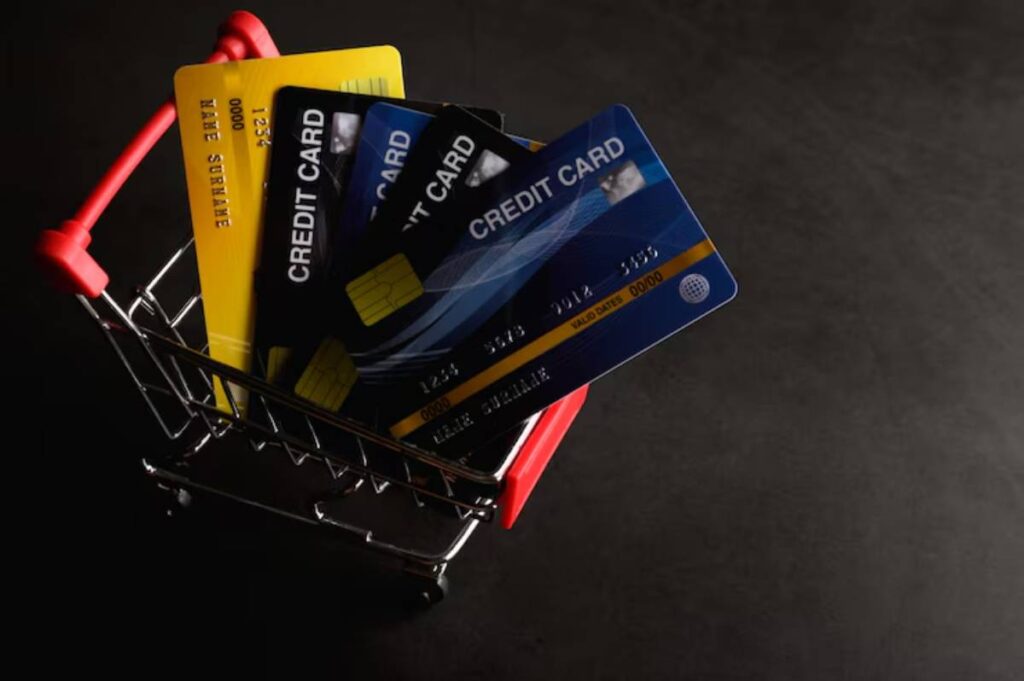The Finance Blog

Choosing Your First Credit Card
Getting your first credit card is a big financial milestone. It’s a step toward independence, responsibility, and building your credit history. But with so many options out there, it’s easy to feel overwhelmed.
What’s the best card to start with? How do you know which features matter most? And what should you watch out for?
In this guide, you’ll learn everything you need to know about credit card selection — from understanding how cards work to choosing the right one for your goals. These simple, clear beginner tips will help you feel confident from the start.
Why Getting Your First Credit Card Matters

A credit card does more than just let you pay for things. Used wisely, it helps you:
- Build your credit score
- Establish a credit history
- Prove you can manage money
- Qualify for better loans and interest rates in the future
If you start with smart habits, your first card can be the foundation of strong financial health.
How Credit Cards Work
Before choosing a card, it’s important to understand the basics.
When you use a credit card:
- You borrow money from the card issuer
- You pay it back monthly (with interest if not paid in full)
- You get a monthly statement showing what you owe
If you pay the full balance by the due date, you won’t pay interest. But if you carry a balance, interest adds up quickly.
Key Terms to Know
1. APR (Annual Percentage Rate)
This is the interest rate on your card. Lower is better, especially if you ever carry a balance.
2. Credit Limit
The maximum amount you can spend. For beginners, this might be low — and that’s okay.
3. Grace Period
The time you have to pay your balance in full before interest kicks in (usually 21–25 days).
4. Minimum Payment
The smallest amount you must pay each month. Always aim to pay more — or pay in full if you can.
What to Look for in Your First Credit Card
When making your credit card selection, focus on features that match your needs and help you build credit safely.
1. No Annual Fee
Many starter cards don’t charge a yearly fee. Avoid extra costs when you’re just starting out.
2. Low Interest Rate
If you think you might carry a balance (not recommended), look for the lowest APR you can find.
3. Credit Reporting
Make sure the card reports to all three major credit bureaus (Experian, Equifax, TransUnion). This helps build your score.
4. Simple Rewards (Optional)

Some starter cards offer cashback or points. While rewards are nice, don’t let them be your main reason for choosing a card.
5. Mobile App Access
A good app helps you track spending, make payments, and set up alerts — all of which help you stay on top of your finances.
Types of Beginner Credit Cards
Here are the main options when choosing your first credit card.
Secured Credit Cards
- Require a refundable deposit
- Limit equals your deposit
- Great for people with no credit or low scores
Best for: Building or rebuilding credit safely
Student Credit Cards
- Made for full-time students
- Lower limits and easier approval
- Often come with educational tools
Best for: Young adults with limited income and no history
Starter or Entry-Level Unsecured Cards
- No deposit needed
- Lower limits and basic features
- May have higher interest rates
Best for: Beginners with a steady income or some credit history
How to Apply for Your First Credit Card
Here are the steps to follow:
1. Check Your Credit Score
Use a free tool like Credit Karma, ClearScore, or Experian to see where you stand.
2. Compare Cards
Look at features, fees, reviews, and approval odds. Use trusted websites to compare beginner cards.
3. Gather Documents
You’ll need:
- Proof of income
- Address history
- ID (passport, driving licence)
4. Apply Online
Most issuers have a quick application process. You’ll know within minutes if you’re approved.
5. Wait for the Card
Once approved, your card will arrive in the mail — usually within 7–10 days.
Smart Habits to Build Credit from the Start
Use these beginner tips to stay on the right track:Pay On Time
Set up reminders or automatic payments to never miss a due date.
Keep Balances Low
Use less than 30% of your limit. If your limit is £300, stay under £90.
Pay in Full
If you can, pay off your entire balance each month. This avoids interest and builds trust with lenders.
Monitor Your Account
Check your app weekly. Look for unexpected charges, due dates, or changes in your score.
Avoid Cash Advances
These come with high fees and interest. Stick to regular purchases.
What to Avoid as a First-Time Cardholder
Applying for Multiple Cards
Too many applications hurt your score. Start with one good card.
Spending to Earn Rewards
Chasing points can lead to overspending. Use rewards as a bonus, not a goal.
Ignoring the Fine Print
Always read your card agreement. Know the fees, limits, and terms.
Only Paying the Minimum
Paying just the minimum keeps you in debt longer and costs more in interest.
What to Do After You Get Your Card
You’ve made your credit card selection and received your first card — now what?
- Make a small purchase (like groceries or a phone bill)
- Pay it off in full by the due date
- Repeat each month
- Track your credit score every 30–60 days
When to Apply for a Second Card
After 6–12 months of responsible use, you might consider a second card if:
- Your income has increased
- Your credit score has improved
- You want to boost your credit limit or diversify your profile
Always space out applications and stay within your means.
Start Strong, Stay Smart
Your first credit card is more than a payment method — it’s a tool for building credit, forming habits, and shaping your financial future.
With the right card and a few smart habits, you can make the most of this opportunity and avoid common pitfalls Use these beginner tips to guide your credit card selection and grow your credit with confidence.









